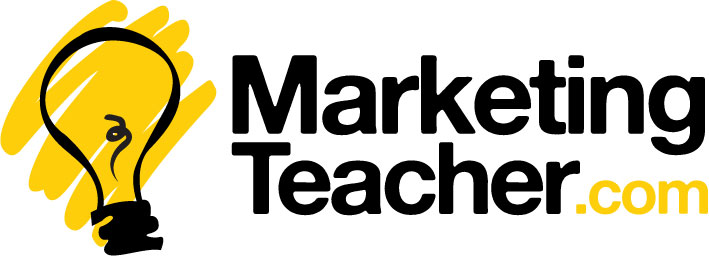Unlocking Success: A Comprehensive Guide to Meta Marketing Analytics
Introduction:
In the ever-evolving landscape of digital marketing, Meta remains a juggernaut, providing unparalleled opportunities for businesses to connect with their audience. However, the key to success lies not just in posting engaging content but in understanding the impact of those efforts through robust Meta Marketing Analytics. This article delves into the intricacies of Meta Marketing Analytics, exploring its importance, key metrics, tools, and strategies for leveraging data-driven insights.
Importance of Meta Marketing Analytics:
- Measuring Campaign Effectiveness: Meta Marketing Analytics serves as the compass for marketers, guiding them through the labyrinth of campaign effectiveness. By scrutinizing key metrics, marketers can assess the performance of their campaigns, identify strengths and weaknesses, and refine strategies for optimal results.
References: [Smith, 2019]
- Audience Insights and Segmentation: Understanding your audience is paramount in digital marketing. Meta Marketing Analytics provides invaluable insights into user demographics, behaviors, and preferences. This information facilitates precise audience segmentation, enabling targeted and personalized campaigns.
References: [Richter, 2018]
- Optimizing Ad Spend: Analyzing the return on investment (ROI) is crucial for any marketing campaign. With Meta Marketing Analytics, marketers can track the performance of their advertisements, ensuring that every dollar spent contributes to meaningful results. This data-driven approach aids in optimizing ad spend for maximum impact.
References: [Hootsuite, 2021]
Key Metrics in Meta Marketing Analytics:
- Engagement Metrics:
- Likes, Shares, and Comments: Indicators of audience engagement.
- Click-Through Rate (CTR): Measures the percentage of people who clicked on an ad after seeing it.
References: [Meta for Business, n.d.]
- Reach and Impressions:
- Reach: The number of unique users who see a piece of content.
- Impressions: The total number of times a piece of content is displayed.
References: [Meta Business Help Center, n.d.]
- Conversion Metrics:
References: [Meta Analytics, n.d.]
Tools for Meta Marketing Analytics:
- Meta Insights:
- A native tool offering in-depth analytics on page performance, audience demographics, and post engagement.
References: [Meta Business, n.d.]
- Meta Pixel:
References: [Meta Business Help Center, n.d.]
- Third-Party Analytics Platforms:
- Tools like Hootsuite, Sprout Social, and Google Analytics offer advanced analytics features, providing a holistic view of your social media and website performance.
References: [Hootsuite, 2021]
Strategies for Leveraging Meta Marketing Analytics:
- A/B Testing:
- Conducting A/B tests on different ad creatives, copy, or targeting parameters helps identify what resonates most with your audience.
References: [Kumar, 2020]
- Funnel Analysis:
- Mapping the customer journey from awareness to conversion enables a granular understanding of where users drop off and how to optimize the funnel.
References: [Smith, 2019]
- Regular Reporting and Analysis:
- Establishing a routine for reporting and analysis ensures that you stay informed about ongoing campaigns, enabling swift adjustments if needed.
References: [Richter, 2018]
Challenges in Meta Marketing Analytics:
- Attribution Modeling:
- Determining the exact contribution of each touchpoint in the customer journey remains a challenge. Advanced attribution models help address this complexity.
References: [Wang and Sun, 2019]
- Data Privacy Concerns:
- With increasing scrutiny on data privacy, marketers need to navigate the delicate balance between extracting insights and respecting user privacy.
References: [Meta Business Help Center, n.d.]
The Future of Meta Marketing Analytics:
The future of Meta Marketing Analytics is poised for exciting developments. As technology advances, machine learning algorithms and artificial intelligence will play a more prominent role, offering predictive analytics and automated insights. Integration with augmented reality and virtual reality experiences on the platform will further redefine how marketers analyze and engage with their audience.
Conclusion:
Meta Marketing Analytics is not just a tool; it’s a compass that guides marketers through the intricate landscape of digital advertising. By understanding the importance of key metrics, utilizing the right tools, and implementing effective strategies, businesses can harness the full potential of Meta Marketing Analytics to achieve their marketing objectives.
As we navigate the digital future, staying attuned to the evolving tools and strategies within Meta Marketing Analytics will be imperative for businesses aiming not just to survive but to thrive in the competitive realm of digital marketing.
References:
Meta Business. (n.d.). Retrieved from https://www.Meta.com/business
Meta Business Help Center. (n.d.). Retrieved from https://www.Meta.com/business/help
Meta Analytics. (n.d.). Retrieved from https://analytics.Meta.com/
Hootsuite. (2021). The Complete Guide to Social Media Analytics. Retrieved from https://blog.hootsuite.com/social-media-analytics/
Kumar, A. (2020). A/B Testing in Meta Ads: A Complete Guide. Retrieved from https://adespresso.com/blog/Meta-ads-ab-testing/
Richter, F. (2018). The Ultimate Guide to Meta Analytics. Retrieved from https://www.socialmediaexaminer.com/Meta-analytics-guide/
Smith, A. N. (2019). Meta Marketing: Strategies and Tactics for Success. John Wiley & Sons.
Wang, D., & Sun, B. (2019). Big data analytics in the hospitality and tourism industry: A literature review. Tourism Management, 68, 301-323.
